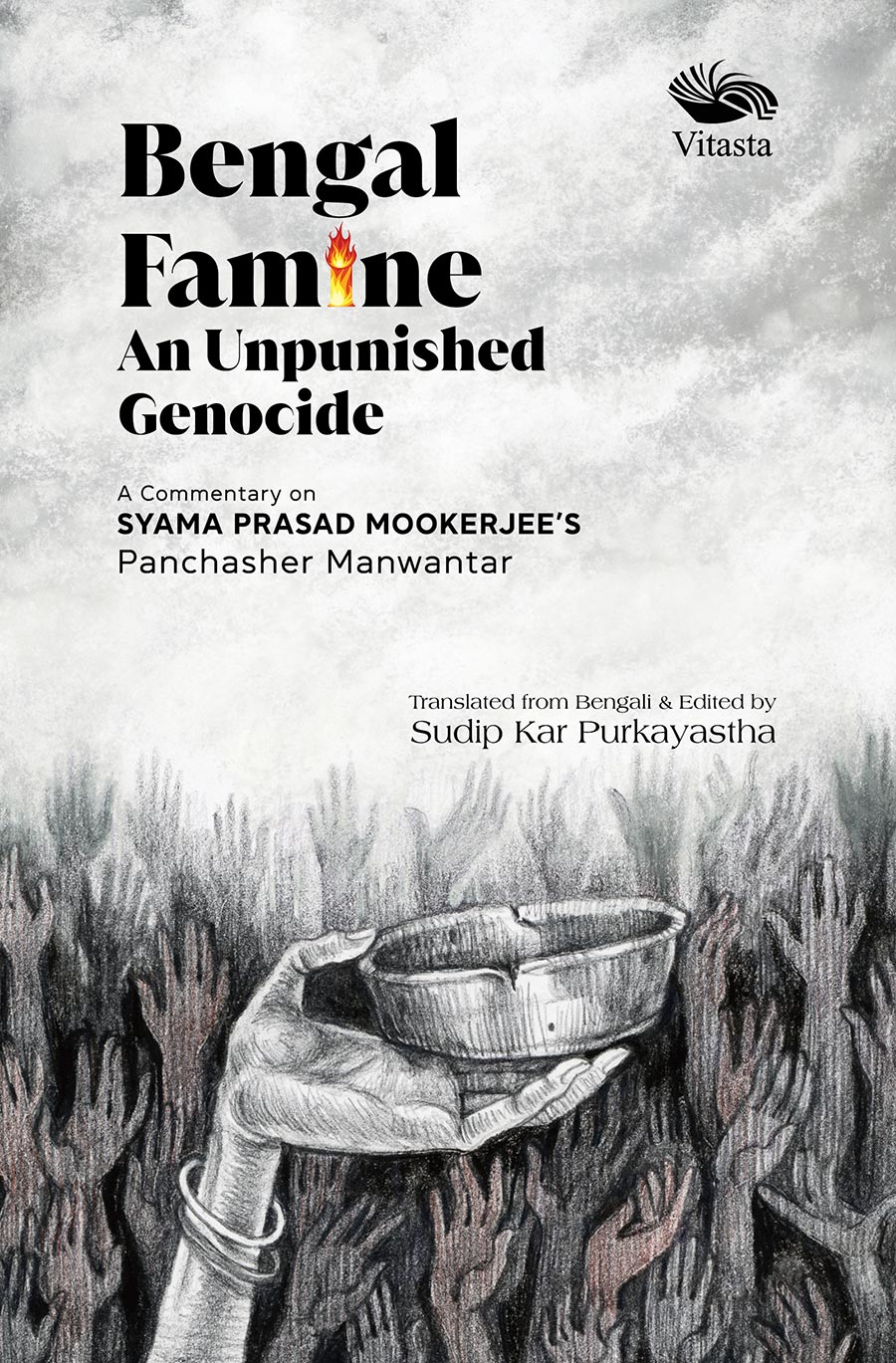
Bengal Famine: An Unpunished Genocide - A Commentary on Syama Prasad Mookerjee Panchasher Manwantar
ISBN: 9789390961023
Author: Syama Prasad Mookerjee/Translator: Sudip Kar Purkayastha
Price: Rs. 695
Binding: HB
PREVIEW
About the Book
This book is a commentary on the 1944 book Panchasher Manwantar by Syama Prasad Mookerjee, a political stalwart of the time. In his book, Syama Prasad argues that the famine of 1943-44 that is said to have caused the death and displacement of three million people, tearing apart Bengal’s social and economic fabric, was a man-made disaster. The acute food shortage was deliberately created by the Churchill government to punish a rebellious, militant Bengal. The colonial government adopted a ‘scorched-earth’ policy, burned the boats that carried grain, promulgated an anti-hoarding act that prevented farmers and householders from keeping even small buffer stocks, while hoarding by private lobbies was allowed resulting in huge price rise. This policy was actively supported by the communal practices of the local Muslim League government. Translator Sudip Kar Purkayastha believes this to be a deliberately crafted and ruthlessly implemented policy that resulted in a GENOCIDE of Bengalis and notes that its perpetrators have not yet been called to account.
About the Author
Syama Prasad had entered the Bengal Legislative Council as a Congress candidate in 1929, representing Calcutta University. Following the Congress decision to boycott the Legislative Council, he resigned and got re-elected to the Council as an independent candidate in 1930. In 1937, he was elected to the Bengal Legislative Assembly from the University constituency. In December 1941, Syama Prasad and Sarat Bose (brother of Netaji Subhas Bose) succeeded in installing the first secular, progressive coalition government in the province.Syama Prasad served as finance minister in that ministry till November 1942 when he resigned to protest against repeated interventions by Governor Herbert. During the 1943-44 famine, Syama Prasad waged a courageous battle against the League-British nexus and played a stellar role in providing relief to millions of famine victims.
555
555
Copyright 2022 VitastaPublishing. All rights Reserved Designed by CrissCross Solutions LLP.

